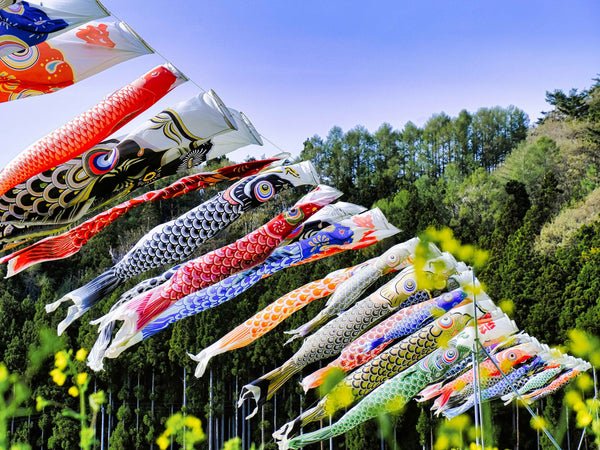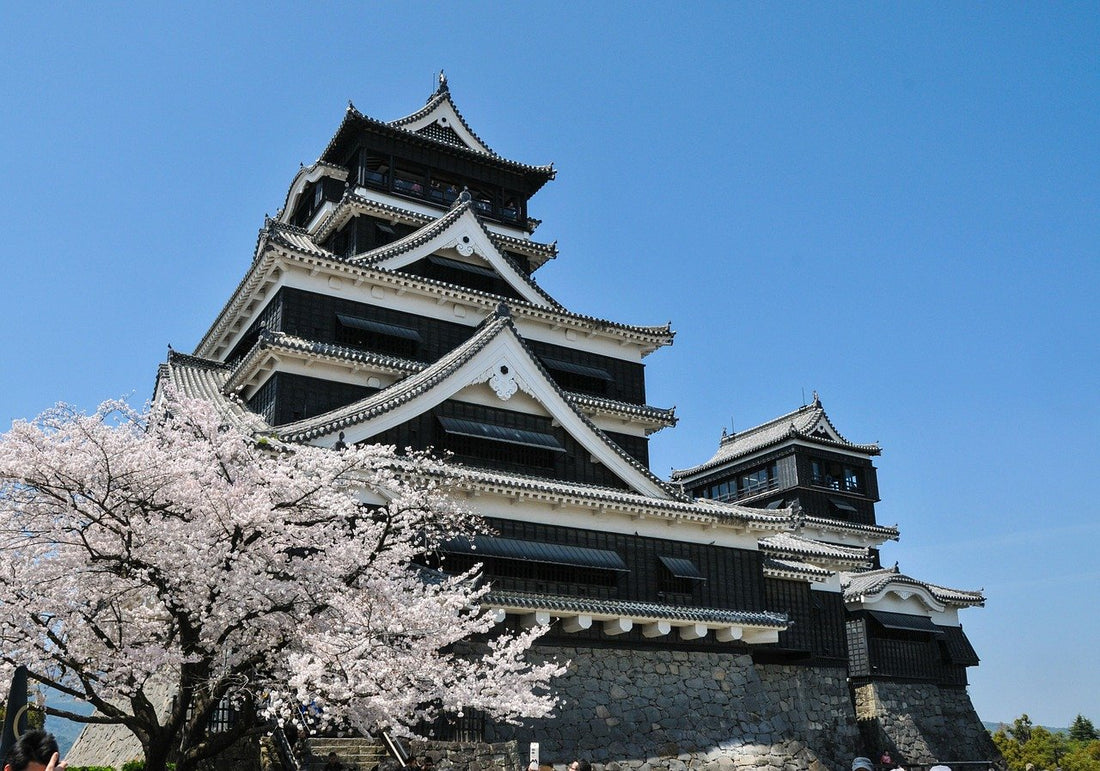Golden Week is the name given to the week in Spring that houses 4 of the 16 Japanese national holidays. The week begins with Shōwa Day followed by Constitution Day, Greenery Day, and ends with Children's Day.
Origins of the name "Golden Week"
The term “Golden Week” is not related to the holidays at all but actually came about due to the high attendance rate at movie theaters. After the 1947 constitution, the clustering of holidays in Spring led to increased amounts of free time. Many people in Japan used this free time to see different movies. In the Spring of 1951 postwar filmmaker and novelist Bunroku Shishi’s movie Jiyu Gakko saw record sales during the holidays. So much so, that the filmmaker declared this incredibly lucrative time of the year “Golden Week”. The tradition of attending the cinema still holds up to this day.
How Golden Week is Celebrated
Travel has also become increasingly significant during this time. In 2019, approximately 35% of the population traveled throughout Japan to visit family and friends and enjoy the holiday season. This is partially due to many workers and students having this week off from their duties, as many businesses and nonessential offices are closed for much of the holiday week. Additionally, given the timing of Golden Week, spring is in full bloom across much of Japan, with temperatures averaging 60 - 70° F (15 - 20° C) during the days. Citizens and tourists alike take advantage of this free time and beautiful weather by spending Golden Week visiting public parks, museums, and gardens.
Golden Week Holidays
April 29th: Shōwa Day (Show no Hi; 昭和の日)
Showa Day celebrates the birthday of emperor Hirohito, posthumously named Emperor Shōwa. Emperor Showa ruled from 1926 until his passing in 1989, making him the longest-reigning monarch in Japanese history.
The holiday is dedicated to remembering the Showa era, when the Japanese people collectively worked to rebuild the country - both literally and figuratively - following WWII. This holiday encourages active public reflection of Hirohito’s reign and the promising future of Japanese society.
May 3rd: Constitution Day (Kenpō Kinenbi; 憲法記念日)
This day celebrates the day in 1947 in which the new postwar constitution was put into effect. This new constitution prioritized peace and pacifism while instituting a more democratic approach to governing, allocating more power into the hands of the people, rather than the government.
This solemn holiday may not invoke much of the same excitement of other Japanese festivals, but instead asks Japanese citizens to recognize and appreciate the history of their nation.
May 4th: Greenery Day (Midori no Hi; みどりの日)
This day is dedicated to the environment and celebration of nature, due to emperor Showa’s love of the natural world. The holiday was originally celebrated on his birthday (April 29th), but the date was switched in 2006 when April 29th became Showa Day.
Similarly to Ocean Day and Mountain Day holidays in Japan, Greenery Day encourages Japanese citizens to connect with the beauty and wonder of nature.
May 5th: Children's Day (Kodomo no Hi; こどもの日)
Children's Day, also known as Tango no Sekku, is one of the five sacred festivals in Japan. Its history is linked with samurai traditions, where it originated as a way to ward off misfortune and malevolent spirits. Until 1948, Children's Day in Japan was known as Boys' Day, with Doll's Day (Hinamatsuri; 雛祭り) serving as the the "girls' day" counterpart.
After it's renaming, Children's Day was dedicated to celebrating, and praying for, the health and happiness of all children, as well as appreciating mothers.
Children's Day celebration has been a fixture in Japanese culture since the Nara Period (710 - 784 AD), and is easily recognizable by the hanging of large carp streamers/ windsocks known as koinobori (鯉のぼり). These Japanese carp streamers are associated with a famous Chinese legend, serving as a wish for courage and strength for all children. The legend states that if a carp is strong enough to swim up raging rapids, it can become a dragon. Japanese youth are encouraged to aspire to be a dragon.


